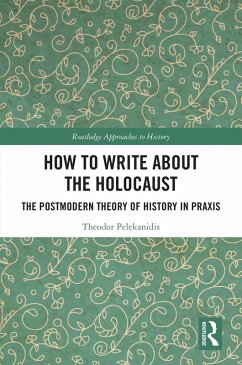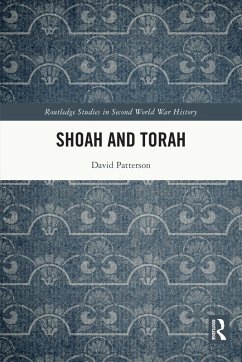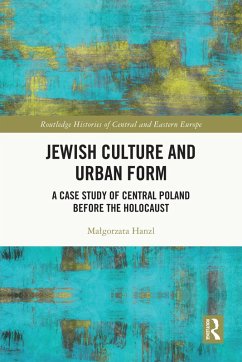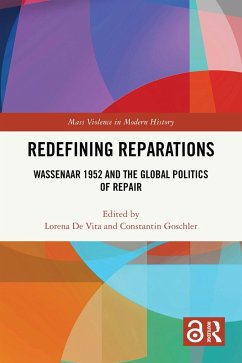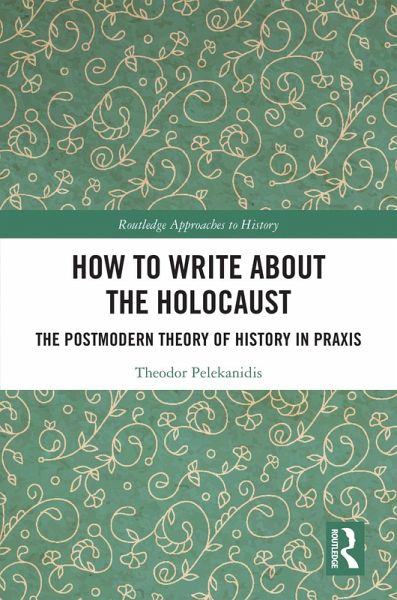
How to Write About the Holocaust (eBook, ePUB)
The Postmodern Theory of History in Praxis
Versandkostenfrei!
Sofort per Download lieferbar
39,95 €
inkl. MwSt.
Weitere Ausgaben:

PAYBACK Punkte
20 °P sammeln!
How to Write About the Holocaust is a contribution to ongoing debates in historiography and Holocaust studies. More specifically, it combines the theoretical framework that has developed in historiography in the last half a century with the demands of Holocaust representation.The first part of the book analyzes the newest trends in theory of history, focusing especially on postmodernism, starting from the works of the American historian and theorist Hayden White and tracing the genealogy of the postmodern influence in history both from an epistemological and from a political perspective. The s...
How to Write About the Holocaust is a contribution to ongoing debates in historiography and Holocaust studies. More specifically, it combines the theoretical framework that has developed in historiography in the last half a century with the demands of Holocaust representation.
The first part of the book analyzes the newest trends in theory of history, focusing especially on postmodernism, starting from the works of the American historian and theorist Hayden White and tracing the genealogy of the postmodern influence in history both from an epistemological and from a political perspective. The second part continues by incorporating these theoretical developments into specific written examples on the Holocaust.
By analyzing major works about it, including Saul Friedländer's and Dan Stone's histories of the Holocaust, the book attempts to answer questions like: what is the most appropriate way to write about the Holocaust and what can theory teach us about the practice of history? To conclude, the volume explores the connection between history and literature and asks if the distinction between fact and fiction has become outdated.
The first part of the book analyzes the newest trends in theory of history, focusing especially on postmodernism, starting from the works of the American historian and theorist Hayden White and tracing the genealogy of the postmodern influence in history both from an epistemological and from a political perspective. The second part continues by incorporating these theoretical developments into specific written examples on the Holocaust.
By analyzing major works about it, including Saul Friedländer's and Dan Stone's histories of the Holocaust, the book attempts to answer questions like: what is the most appropriate way to write about the Holocaust and what can theory teach us about the practice of history? To conclude, the volume explores the connection between history and literature and asks if the distinction between fact and fiction has become outdated.
Dieser Download kann aus rechtlichen Gründen nur mit Rechnungsadresse in A, B, BG, CY, CZ, D, DK, EW, E, FIN, F, GR, HR, H, IRL, I, LT, L, LR, M, NL, PL, P, R, S, SLO, SK ausgeliefert werden.




